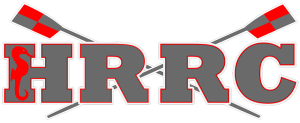Frequently Asked Questions
Not sure if rowing or HRRC are the right fit for you? Please read over some of the most frequently asked questions and see if your concerns are addressed. We do our best to answer all questions prospective and current members may have, so don't hesitate to reach out if you have another.
-
What if I've never rowed before?
No problem, HRRC holds Learn to Row classes throughout the spring and summer to help you master the basics of the sport. Learn more
-
Do I have to be fit to row?
Rowing will take a little while to master and as you get more proficient you also become fitter. Rowing uses more major muscle groups than any other sporting activity. The primary effects are in the legs, back and arms and it can really help to tone your body. As all your weight is supported by the boat, there is no jarring of the joints and it is a very safe sport. When you become skilled you can expect to burn 500-600 calories per hour. You’d be hard pressed to find another sport that keeps your entire body fit. There is no impact on the joints, but there is both an endurance and strength building aspect to the stroke and a rowing workout. The common misconception about rowing is that it is pulling with your arms, shoulders and back. In actual fact, it is pushing with your legs — think of a fast squat — then a follow-through with the upper body. However you must have good balance and overall physical mobility to take up rowing. In addition, you should be able to swim and perform deep knee bends.
-
What are the advantages of rowing?
Apart from the obvious health advantages of rowing, our rowing club and competitions are often in picturesque locations. Rowing offers a whole range of social activities and it is a great way to meet like-minded people of all ages.
-
Do I need special equipment to row?
The club will provide you with all the equipment and the instruction in order to start rowing.
-
What is the time commitment?
As a beginner you will probably row once or twice a week and this may gradually increase. If you wish to row recreationally it doesn't matter how many times, but if you wish to compete then three training sessions a week is usually a minimum.
-
What about coxing?
If you aren't sure about physically rowing but still wish to race or be part of a crew, then why not consider coxing, especially if you are of a slight build, we would like to hear from you. A special trust is placed in the coxswain, all that power ready to explode on your word, along with the responsibility of ensuring the safety of your crew and other water users. The most basic thing you have to do as a cox is steer the boat. Sadly this is all some coxes do, and worse still, some coxes often do this one thing badly as well. Yes you must be able to steer a straight line in the wind on a race course, and a clever race line on a Head Race course, but as a cox you must be able to do much more than that. The cox is the only person who can co-ordinate attacking plays, defensive action, and corrective techniques. You are the only person who can have a direct impact on the motivation of the crew.
-
How do I sign up?
Fill in the application and waiver form, which also contains the fees information, then email the club president who will get you out on the water as soon as possible. Welcome to HRRC!
